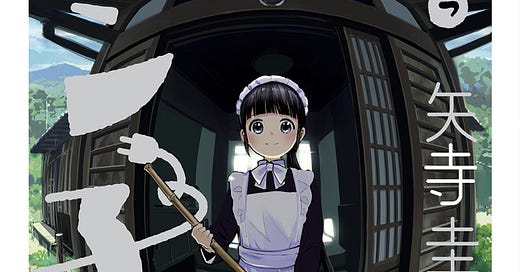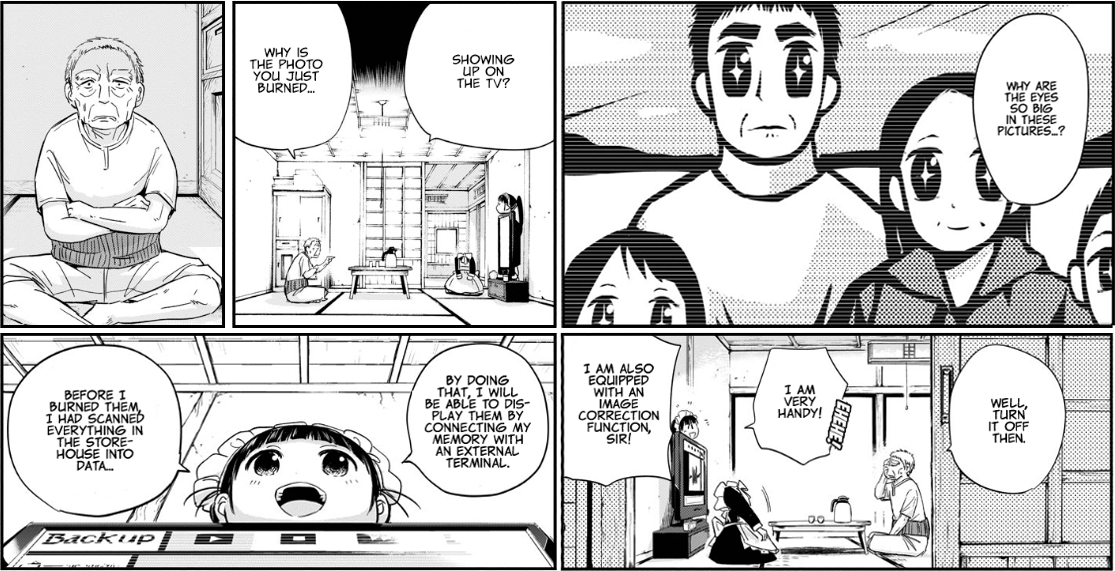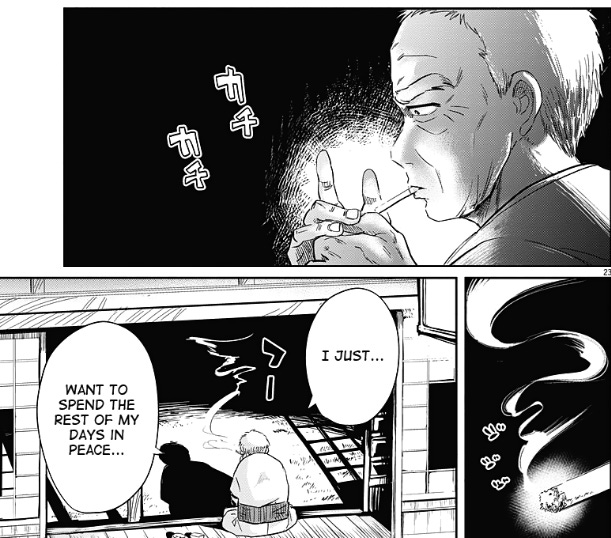Do this for long enough - by "this" I mean "reading foreign comics" - and occasionally you will come across a work whose pacing and thematic consistency suggests a mangaka at the height of their powers, only to find out the artist in question hasn't been plugging away at this for very long. This is becoming more common nowadays, when a lot of illustrators first spend years honing their craft on Twitter/X or pixiv before making their debut, but it's still a welcome surprise whenever it happens. About four or five years ago, when the world was about to shut down due to an airborne virus, I found myself doing something rather unusual for me - literally laughing out loud, tablet in hand - while reading a work by a relative newcomer, a certain Keita Yatera. Born in 1984, he made his debut fairly late, at the age of 29, with Daikanojo (2013), and the publication in question, Ponkotsu Ponko (2018), was basically his third fully fledged manga and the very first one to run for an extended amount of time.
Ponkotsu (ぽんこつ) basically means "useless" in casual Japanese, as in a "can't help themselves" kind of full-spectrum incompetence. As its title suggests, Ponkotsu Ponko is about a robot maid, Ponko, who is incredibly, spectacularly incompetent at her job. In a futuristic Japan decades after a major conflagration - one can find, here and there, references to a major, world-destroying war fought by robotic armies - our artificial humanoid maid Ponko shows up at a sleepy fishing village with one mission: to serve an old man by the name of Yoshioka. To her chagrin, however, the retiree is adamant that he has absolutely no need for such a service. Only when told by a desperate Ponko that she's a 30-year-old model and that dismissal in her case will mean immediate retirement - and by "retirement" she means disassembly and destruction, like a replicant reaching end-of-life in Blade Runner - does Yoshioka agree to keep her. And so their adventures begin.
The first thing to note about Ponkotsu Ponko is that it is hysterical. As humor is notoriously difficult to translate across cultures and languages, lots of gag or comedy manga fall completely flat before most foreign audiences. Most are simply not that good. Overt reliance on a Boke and Tsukkomi routine can quickly tire out one’s readership, but Yatera here quickly proves himself a virtuoso in crafting scenarios where Ponko’s unreliability and, well, single-minded idiocy blend with Yoshioka’s curmudgeon-y disposition to yield comedy gold.
Yatera is quite upfront about his influences. Readers of a certain age - or of a certain taste - will see echoes of Yokohama Kaidashi Kikou's gentle post-apocalyptic setting in the world that he weaves around Yoshioka and his incompetent robotic assistant. As these stories tend to unfold, the old man slowly warms to Ponko, and soon enough she becomes an integral part of the village's close-knit social life. There's a bar-cum-café where the oldies gather, a ragtag group of kids and tweens always ready for mischief, and the other Yoshioka family members living their glamorous urban lives in the capital, all business-like and proper whenever they deign to visit.
“We from the East tend to seek our satisfactions in whatever surroundings we happen to find ourselves, to content ourselves with things as they are; and so darkness causes us no discontent, we resign ourselves to it as inevitable. If light is scarce, then light is scarce; we will immerse ourselves in the darkness and there discover its own particular beauty.”
― Junichirō Tanizaki, In Praise of Shadows
At the very start of the story, Yoshioka is resolutely set in his ways. He whiles away his days in an old house slowly falling into ruin. He has no one to keep him company or share his thoughts with. As we learn, he is a widower whose beloved wife Chiaki passed away after a long illness. The seemingly empty house is not truly vacant - wherever he goes, Yoshioka sees the ghosts of days past. In his mind's eye, his now middle-aged children, long since gone, still run through the dining room and play animatedly in the backyard. Ponko inadvertently disrupts his plan of wasting away in solitude. Her endearing incompetence forces him to rise to the challenge of fixing her screwups.
Gradually, he realizes he has moved beyond mourning. In one of the most powerful scenes in the first volume, Yoshioka asks Ponko if she fears 'retirement' (i.e., death) - revealing perhaps that he wasn't as ready to face his own mortality as he initially appeared. Ponko's response comes without hesitation.
“Unlike humans, our last moment is like smoke. Slowly, it fades into the air. Gone, like it never was.”
He remains silent, puffing away at his pipe as night descends. A lesser author would have inserted dialogue to emphasize the pathos, but Yatera allows the scene to breathe. In the very next page, morning has already come and Ponko is out in the yard, making a mess again.
RATING: 8/10








Nice, made me want to read it. It’s been a long time since I thought about “in praise of shadows as well”. Nuance is king, and juxtaposing subtlety with aloofness in a way that does justice to the complex and tragicomic nature of humanity is definitely an art in itself